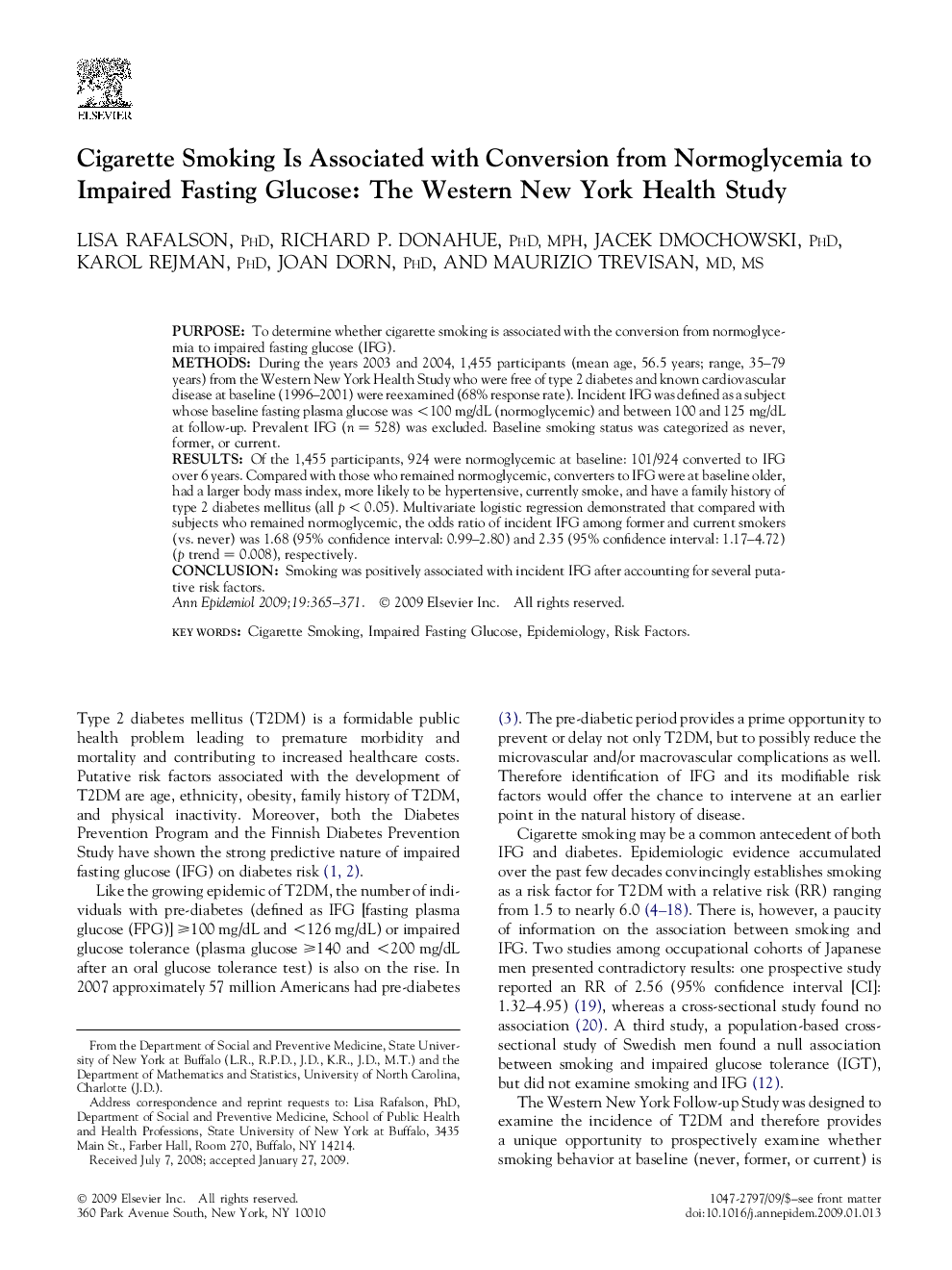| Article ID | Journal | Published Year | Pages | File Type |
|---|---|---|---|---|
| 3445118 | Annals of Epidemiology | 2009 | 7 Pages |
PurposeTo determine whether cigarette smoking is associated with the conversion from normoglycemia to impaired fasting glucose (IFG).MethodsDuring the years 2003 and 2004, 1,455 participants (mean age, 56.5 years; range, 35–79 years) from the Western New York Health Study who were free of type 2 diabetes and known cardiovascular disease at baseline (1996–2001) were reexamined (68% response rate). Incident IFG was defined as a subject whose baseline fasting plasma glucose was <100 mg/dL (normoglycemic) and between 100 and 125 mg/dL at follow-up. Prevalent IFG (n = 528) was excluded. Baseline smoking status was categorized as never, former, or current.ResultsOf the 1,455 participants, 924 were normoglycemic at baseline: 101/924 converted to IFG over 6 years. Compared with those who remained normoglycemic, converters to IFG were at baseline older, had a larger body mass index, more likely to be hypertensive, currently smoke, and have a family history of type 2 diabetes mellitus (all p < 0.05). Multivariate logistic regression demonstrated that compared with subjects who remained normoglycemic, the odds ratio of incident IFG among former and current smokers (vs. never) was 1.68 (95% confidence interval: 0.99–2.80) and 2.35 (95% confidence interval: 1.17–4.72) (p trend = 0.008), respectively.ConclusionSmoking was positively associated with incident IFG after accounting for several putative risk factors.
